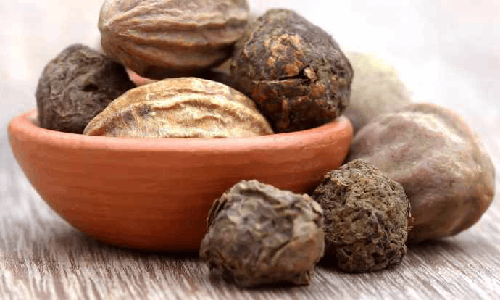Ageing is inevitable. But it does not mean that it has to be a tough or bitter experience. Instead, it should be considered as a graceful and meaningful journey. With the help of Ayurveda, you can make the journey towards older age beautiful by focusing on improving the quality of your physical and mental well-being. Take Care of Yourself According to Ayurveda, ageing is a natural process regulated by the three Doshas – Vata, Pitta, and Kapha. As we age, our Vata Dosha goes out of balance and we experience it through symptoms, such as dryness, weakness and difficulty in mobility. Therefore, balancing Vata Dosha is essential to remain healthy and active in the later years. Ayurveda recommends many natural ways to keep your Vata Dosha in balance. Change Your Lifestyle Indeed, lifestyle changes can make a whole lot of difference in the way you age. Follow a Daily Routine Following a structured daily routine or Dinacharya has a strong positive influence over the Doshas. Morning rituals Start the day with a glass of warm water to wash out toxins. Oil pulling, brushing and tongue scraping are small routine activities that make way for great oral health. This should be followed by some yoga or stretching exercises to keep your body flexible and disease-free. Oil massage (Abhyanga) Use organic black sesame oil to do a full-body massage before taking a shower. It helps to moisten and feed the skin. It also prevents the formation of cracks and relieves Vata Dosha. Healthy breakfast Consume a balanced, freshly cooked breakfast to have energy throughout the day. Don’t run after the packaged breakfast options like cereals, muesli, etc. Cook your first meal of the day with love and with a dash of ghee and it will do wonders to balance your aggravated Vata. Want to learn more about Dinacharya? Download my e-book for free. Have a Balanced Diet While planning for a meal, include foods that are fresh and organic and are light on the tummy. Have warm, cooked foods As you age, your digestion may be compromised. Hence your body may not be able to absorb nutrients properly. Therefore, it is advisable to go for warm, cooked meals rather than raw, cold, or heavy foods that, on the other hand, may cause indigestion. Consume anti-ageing foods Increase the intake of foods that can help counter oxidative stress such as berries, green leafy vegetables, fruits and nuts. Stay hydrated Have plenty of water, especially during the warmer Summer and Autumn months or if you engage in heavy physical activity or work outdoors. You can also have herbal teas occasionally to help detoxify your body. However, not all herbs may be suitable for you. So, it’s better to consult a qualified Ayurvedic doctor for advice. Sleep Well Sleep is an essential factor for overall wellness. Have adequate sleep One must get quality sleep in order to be healthy and alert. Sleep for 6-8 hours at night so that your body gets enough repair time to rejuvenate itself. Establish a sleep routine Be consistent with your sleep and wake-up timings. In addition, this helps to set your body clock efficiently. Create a calming environment Declutter your bedroom by getting rid of all the electronic gadgets and things that may distract you at night. Practice relaxation techniques Do activities that will help you relax, such as listening to music or reading a book, before sleeping. Try Detoxification As we age, more toxin buildup happens in our body because our body’s natural process of expelling the toxins gets weakened. Detoxification flushes out toxins from the body and revitalizes tissues. Seasonal detox Discuss with an Ayurvedic doctor to choose one suitable detox program at the beginning of every season. Detoxifying not only purifies your body but also improves your energy levels. Herbal teas Occasionally, drink herbal teas that support liver functions and remove toxins from the body. Remember, not all herbal teas suit you. So, it’s better to consult a qualified Ayurvedic doctor for advice. Sip dry ginger tea at night. It gently detoxifies your gut, boosts digestive fire and promotes blood circulation. Dry ginger also controls Vata, which is the dominant Dosha especially in old age. Ayurvedic Practices for Ageing Apart from diet and lifestyle practices, Ayurveda also recommends certain practices that help you age well. Yoga and Exercise Physical exercise is vital so as to keep your body in the best shape possible. Yoga Perform relatively low-impact movements to help in the flexibility of joints. First, try Bitilasana Marjariasana (Cat-Cow pose); then, move on to Balasana (Child’s pose); and finally, conclude with Pashchimottanasana (Seated forward bend pose). It is advisable to perform these poses under the supervision of an expert Yoga trainer if you are a beginner. Also, practising Surya Namaskar (Sun Salutation) daily can also help maintain flexibility and energy levels. Daily walks Take a walk for about 45 to 60 minutes daily. It improves blood circulation; as a result, it makes you feel better and more energized. Strength training Do strength training under the supervision of an expert trainer to help sustain muscles and bones. As the endurance power of your muscles increase, new cells regenerate, delaying the ageing process. Mindfulness and Meditation Age is just a number! It’s all in your mind. Your mental health is, therefore, also of great importance in healthy ageing. Meditation … Continue reading Ageing with Ayurveda
Ageing with Ayurveda




